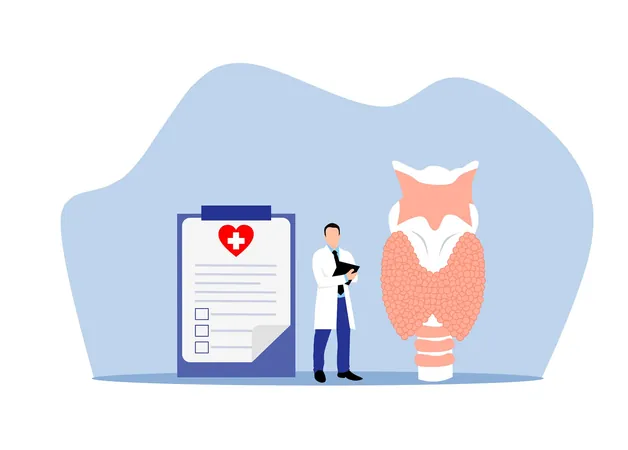
iodine Deficiency: A Hidden Health Crisis!
2025-09-04
Author: Wei
The Surprising Resurgence of Iodine Deficiency
In a shocking turn of events, medical experts are witnessing a revival of an issue many thought was confined to the past: iodine deficiency. This crucial trace element is vital for regulating metabolism and producing essential hormones, especially during childhood development. Dr. Monica Serrano-Gonzalez, a leading pediatric endocrinologist at Brown University, has been at the forefront of research aimed at addressing this growing public health concern.
Where's the Iodine?
The crux of the issue? Iodine is notoriously scarce in our diet. Key sources like dairy, seafood, eggs, and meats are often lacking in modern diets, particularly as more people shift to trendy alternatives like Himalayan and sea salts, which often lack iodization. This decline is significantly impacting communities, especially those that avoid iodized salt due to health misconceptions.
A New Generation at Risk
Certain populations are particularly vulnerable to iodine deficiency—such as children, pregnant, and breastfeeding women. Dr. Serrano-Gonzalez notes that individuals with restrictive diets, including vegans and those with food allergies, are at an elevated risk. With a troubling absence of a public health mandate for iodization in the U.S., many might unknowingly consume non-iodized salt, compounding the problem.
Why is Iodine So Important?
Iodine plays a pivotal role in synthesizing thyroid hormones, which are essential for metabolism and brain development. Insufficient iodine can lead to goiters and various forms of long-term health issues, including cognitive impairments in children. Historically, regions once plagued by iodine deficiency, such as the Great Lakes and Appalachian areas, saw immense improvements after salt iodization programs were implemented.
A Personal Encounter Sparks Investigation
Dr. Serrano-Gonzalez's deep-dive into this issue was propelled by a patient case—an alarming instance where a 13-year-old boy developed a goiter rapidly. Unlike typical cases associated with autoimmune diseases, this boy had no autoimmune markers and instead suffered from dietary restrictions due to his autism spectrum disorder. This realization led to a diagnosis of iodine deficiency, which was swiftly treated with supplements, resulting in a dramatic improvement.
Raising Awareness and Combatting Stigma
The fight against iodine deficiency extends beyond treatment; it involves breaking down the stigma surrounding dietary inadequacies. In pediatrics, Dr. Serrano-Gonzalez and her team are actively educating patients and medical professionals alike about the risks associated with iodine deficiency. They encourage open discussions about nutrition to dispel any misconceptions about iodized salt being inherently unhealthy.
Take Action and Stay Informed
As iodine deficiency emerges as a hidden health crisis, it's crucial to stay vigilant. Families should be aware of iodine sources and consider regular screenings, especially for vulnerable groups. With public education and awareness, we can combat this rising trend and ensure healthier futures for our children.



 Brasil (PT)
Brasil (PT)
 Canada (EN)
Canada (EN)
 Chile (ES)
Chile (ES)
 Česko (CS)
Česko (CS)
 대한민국 (KO)
대한민국 (KO)
 España (ES)
España (ES)
 France (FR)
France (FR)
 Hong Kong (EN)
Hong Kong (EN)
 Italia (IT)
Italia (IT)
 日本 (JA)
日本 (JA)
 Magyarország (HU)
Magyarország (HU)
 Norge (NO)
Norge (NO)
 Polska (PL)
Polska (PL)
 Schweiz (DE)
Schweiz (DE)
 Singapore (EN)
Singapore (EN)
 Sverige (SV)
Sverige (SV)
 Suomi (FI)
Suomi (FI)
 Türkiye (TR)
Türkiye (TR)
 الإمارات العربية المتحدة (AR)
الإمارات العربية المتحدة (AR)